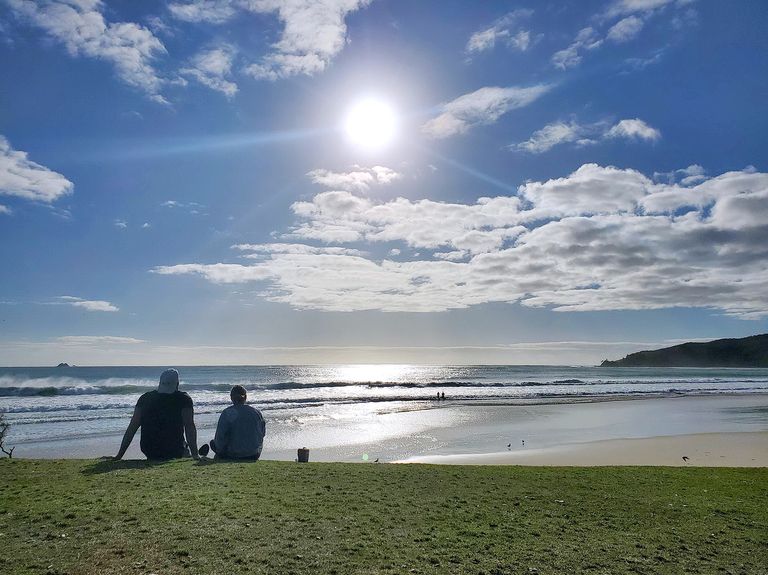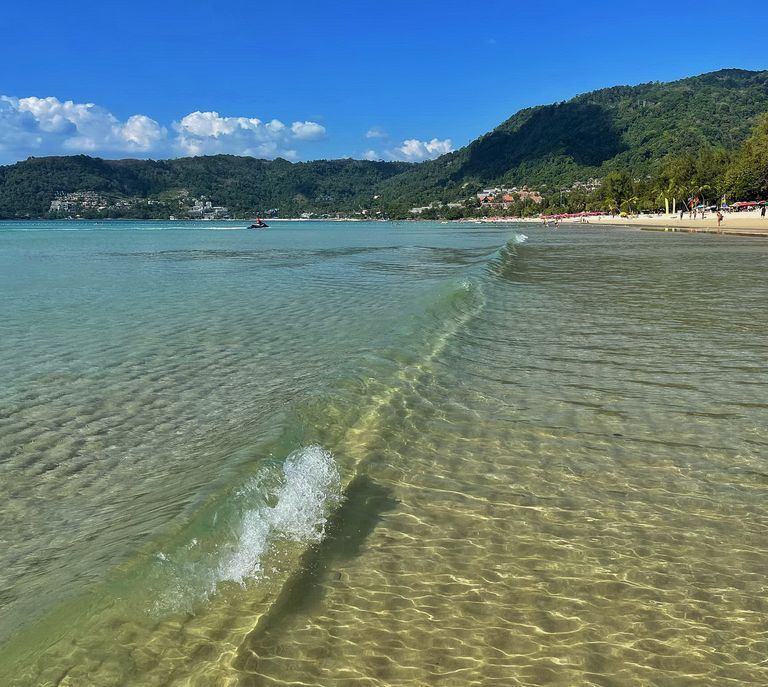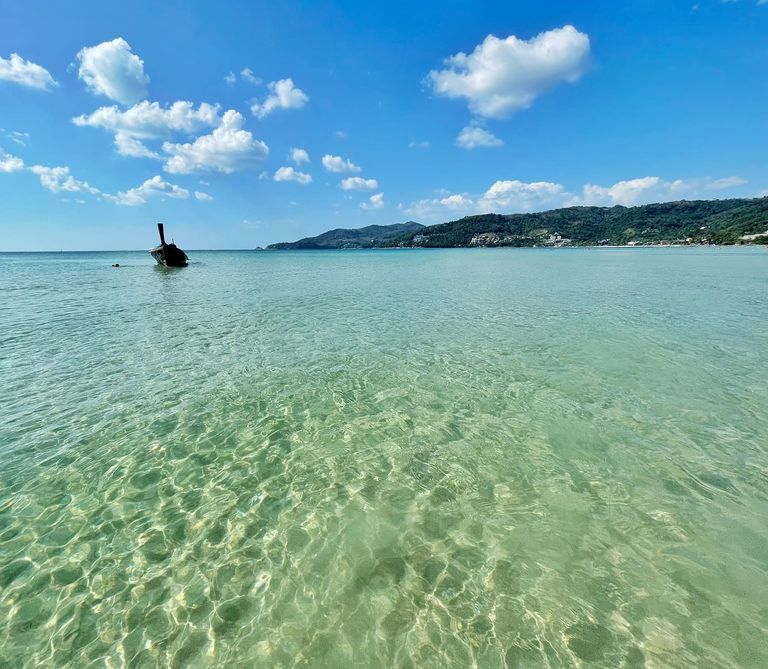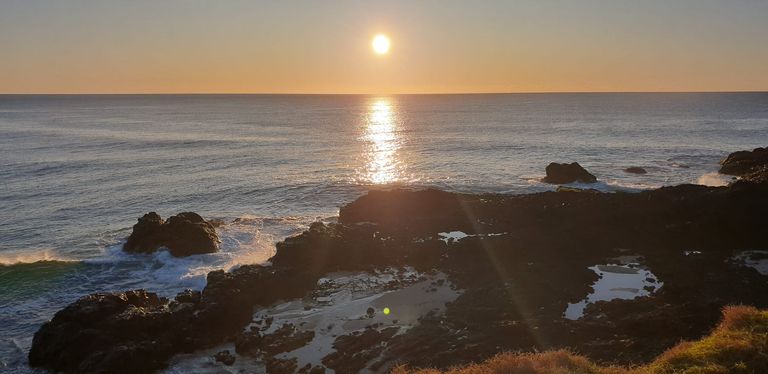Beaches have an undeniable allure. From the crashing waves to the endless horizon, something about a stretch of sand meeting the sea captivates the hearts of many. But why do people flock to these natural expanses in such large numbers? Beyond the surface attractions of sand, sun, and surf, there are deeper psychological, social, and emotional reasons why beaches hold such a magnetic pull.




A Connection with Nature
One of the most profound reasons people are drawn to beaches is the connection they offer with nature. The rhythmic sound of the waves crashing onshore, the vastness of the open sea, and the sensation of warm sand beneath one's feet can foster a deep sense of peace and tranquility. The ocean, with its ever-changing tides and boundless energy, reminds us of the power and beauty of the natural world. It provides a rare opportunity to immerse ourselves in something larger than our daily lives, inspiring feelings of awe and wonder.
For many, the beach is a space to escape the clutter of modern living. Surrounded by skyscrapers, screens, and the buzz of city life, people crave moments of simplicity, where the primary concerns are the warmth of the sun and the gentle pull of the tides. It’s this reprieve from the constant noise of life that makes the beach an attractive retreat. Even the salty air, rich with negative ions, is said to reduce stress and elevate moods, contributing to that inexplicable “beach happiness.”




Freedom and Play
Beaches are places of freedom—both physical and mental. For children, they offer a massive, open playground where creativity can run wild. Building sandcastles, playing beach volleyball, or simply running into the waves taps into a primal need for unstructured, joyful play. Adults, too, find themselves embracing this sense of freedom. The beach is one of the few places where it’s socially acceptable to lie down in the middle of the day, watch the sky, and do absolutely nothing without feeling guilty.
Water itself has an almost magical effect. Swimming, surfing, or even just wading into the ocean can produce a feeling of weightlessness, almost like shedding the weight of the world. Whether you’re floating on your back, staring at the sky, or diving into the cool, refreshing water, the beach allows you to reconnect with your body in a way that everyday life rarely permits. It encourages a sense of physical liberation and the opportunity to reconnect with your inner child.




Social Bonding and Community
Beaches also bring people together. They are communal spaces where people of all walks of life can gather, uniting in shared experiences. Whether you’re a local visiting a nearby beach with family, or a tourist soaking in the sun at an exotic seaside destination, the beach fosters a unique sense of togetherness. Picnics, barbecues, bonfires, and games with friends and family are part of the social traditions that have long been tied to beach life.
The act of going to the beach often signifies a break from the usual routine, making it a prime setting for bonding. The shared joy of soaking up the sun, swimming in the ocean, or simply watching the sunset brings people closer. It can be the backdrop for important life moments—family vacations, romantic getaways, or a casual Sunday with friends. These collective memories make beaches not just places of relaxation but spaces where relationships are strengthened and cherished.




Cultural and Historical Significance
For some, the beach holds cultural or even historical meaning. In coastal regions, beaches are integral parts of local heritage and identity. Generations of families may have lived near and worked from the sea, imbuing the beach with a sense of home and history. In places like Thailand, where beaches are both a tourist draw and a vital part of daily life for local fishermen, they represent a blend of leisure and livelihood.
Beaches have also historically been centers of cultural evolution. From the birth of surfing in Hawaii to the rise of beach music festivals and subcultures like the Californian beach lifestyle, they’ve long been at the heart of creative and social movements. In this sense, beaches symbolize a fusion of tradition and modernity, bringing people closer to both their past and present.




The Escape to Beauty
At the most basic level, beaches are beautiful. The shimmering water reflecting the sky, the vibrant colors of a sunset, and the texture of the sand create a sensory feast. Human beings are naturally drawn to beauty, and the beach offers a multi-sensory experience that is hard to resist. Whether you’re taking in the view or feeling the sun on your skin, the aesthetics of the beach are deeply pleasing.
Photographers, painters, and writers often find inspiration here, capturing the many moods of the beach—from stormy, tumultuous waves to the calm of a summer's morning. It’s a place where the creative soul can find both solace and stimulation.
Conclusion: The Beach as a Timeless Sanctuary
Ultimately, people love going to beaches because they offer a unique blend of relaxation, freedom, and connection. They are a sanctuary where the natural world, personal joy, and social bonding converge. Whether drawn by the beauty, the sense of escape, or the opportunity for play, people flock to beaches because they satisfy both body and soul. It’s a timeless allure, one that will likely continue to inspire joy and wonder for generations to come.





Congratulations, your post has been upvoted by @dsc-r2cornell, which is the curating account for @R2cornell's Discord Community.
Enhorabuena, su "post" ha sido "up-voted" por @dsc-r2cornell, que es la "cuenta curating" de la Comunidad de la Discordia de @R2cornell.